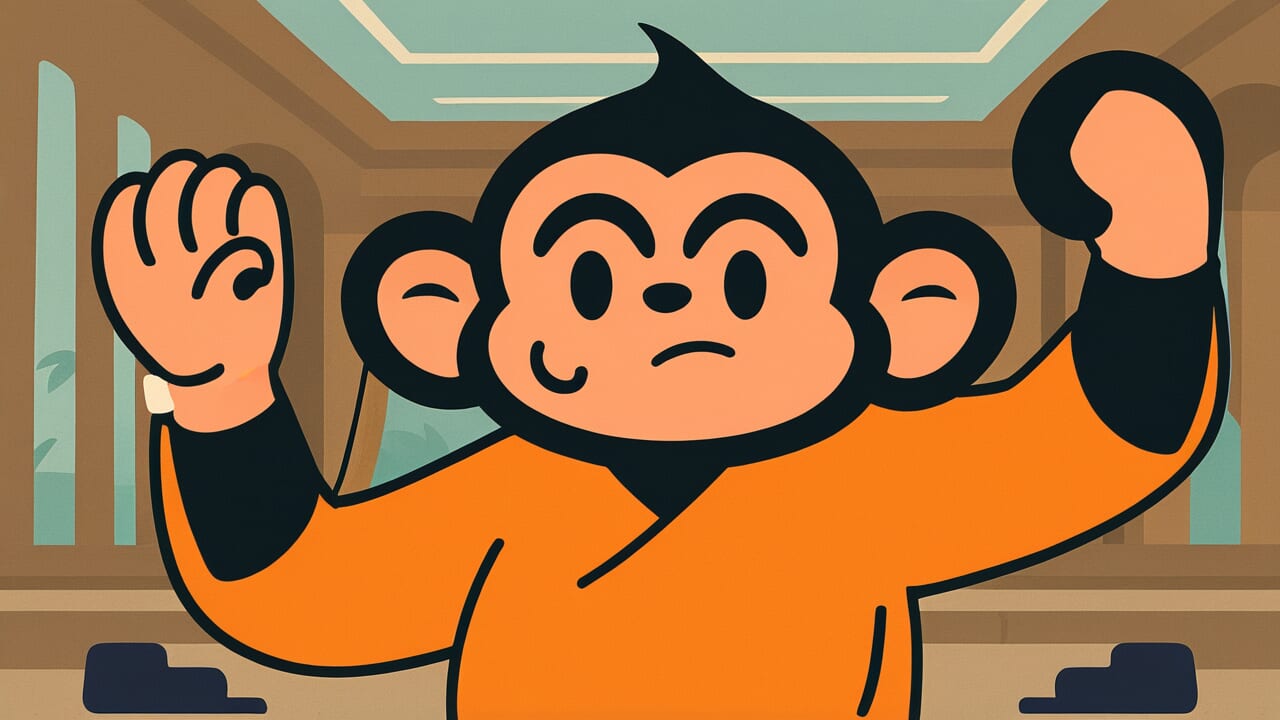How to Read “A beauty’s end is becoming a monkey”
bijin no owari wa saru ni naru
Meaning of “A beauty’s end is becoming a monkey”
This proverb shows a harsh reality. No matter how beautiful someone is, their looks will fade with time.
They will eventually grow old and lose their beauty. The phrase “becoming a monkey” is a strong metaphor.
It emphasizes the dramatic difference between youthful beauty and an aged appearance.
People use this proverb to warn against valuing only physical appearance. Beauty is temporary.
If you rely only on your looks, you’ll lose your sense of worth when old age arrives.
The proverb teaches that inner character and personal growth matter more than fleeting beauty.
Even today, this serves as a warning against appearance-focused thinking. Youth and beauty are certainly attractive, but they don’t last forever.
This proverb reminds us to develop inner values that can withstand the passage of time.
We shouldn’t just chase superficial beauty.
Origin and Etymology
No clear historical record shows when this proverb first appeared. However, we can make interesting observations about its structure.
The contrast between “beauty” and “monkey” forms the core of this saying. Traditional Japanese aesthetics highly valued young, beautiful faces.
Meanwhile, “monkey” was used as a metaphor for wrinkled, aged features.
We can see the influence of Buddhist philosophy here. The concept of “impermanence” teaches that everything changes.
Nothing lasts forever, including beauty. This teaching runs deep in Japanese culture.
The aesthetic of “mono no aware” from the Heian period also reflected sadness about beautiful things eventually fading away.
This proverb may have originated in Edo period moral teachings. It could have been wisdom passed down among common people.
It warned against the danger of relying only on physical beauty. The harsh expression was chosen to make people face the unavoidable reality of aging.
This direct way of speaking reflects the practical life philosophy of Edo commoners.
Usage Examples
- My mother told me that a beauty’s end is becoming a monkey, so I should develop my education while I’m young
- She judges people only by their looks, but as they say, a beauty’s end is becoming a monkey—it won’t last forever
Universal Wisdom
The proverb “A beauty’s end is becoming a monkey” contains wisdom for facing a fundamental human anxiety.
We humans tend to value what we can see. Beautiful appearance certainly attracts people and gains social approval.
But our ancestors saw the danger hidden there. When you base your worth on appearance, which changes easily, your whole self collapses when that beauty fades.
This proverb uses harsh words to make people face reality. Aging comes to everyone equally.
Rather than avoiding this unavoidable fact, we should accept it and prepare for it while young. That’s what this teaching tells us.
Why has this wisdom been passed down for so long? Because every era has had people who place too much value on physical beauty.
Every era has had people who drown in that obsession. Humans have a tendency to lose long-term perspective when captivated by attractive things right in front of them.
This proverb understands that human weakness. It tries to guide us toward a more solid way of living.
It’s strict but warm wisdom. It looks at the unchanging essence of humanity across time and keeps asking what true value really is.
When AI Hears This
When you look at fading beauty through thermodynamics, surprising facts emerge. The human face is a “super high-order system.”
About 200 muscles, precise bone structure, and elastic skin combine in perfect balance. Maintaining this order requires enormous energy input.
Cell division, collagen production, muscle tension maintenance—all need constant energy.
But the second law of thermodynamics says closed systems always move toward disorder. Just as an abandoned new house will decay, human faces are no exception.
After peaking in the twenties, cell repair ability drops one percent each year. Then skin sags under gravity, left-right symmetry breaks down, and wrinkles—”random folds”—increase.
The face follows physical laws, moving from high-order to low-order states.
What’s interesting is that facial features humans find “beautiful” actually match “high orderliness.” Symmetry, smooth skin, balanced arrangement.
These are all indicators of “low entropy states.” Conversely, asymmetry and wrinkles from aging are visual evidence of increasing entropy.
This proverb understood a truth long before science developed. The essence of beauty is actually physical order.
Aging is the irreversible process of that order collapsing.
Lessons for Today
This proverb teaches us a fundamental life question. Where should we find our true worth?
Modern society competes for “likes” on social media. We spend much time and money polishing our appearance.
Of course, keeping yourself beautiful isn’t bad. But if you think that’s your only value, you’ll feel great loss as time passes.
What matters is balance. Enjoy taking care of your appearance while also enriching your inner self.
Read books, learn new skills, build deep relationships, contribute to society. These activities deepen as you age.
They become your true charm as a person.
Youth and beauty are gifts given for one period of life. People who enjoy that gift while knowing it won’t last forever are strong.
Starting today, why not gradually build up values that grow with time? That’s the secret to shining at any age.



Comments